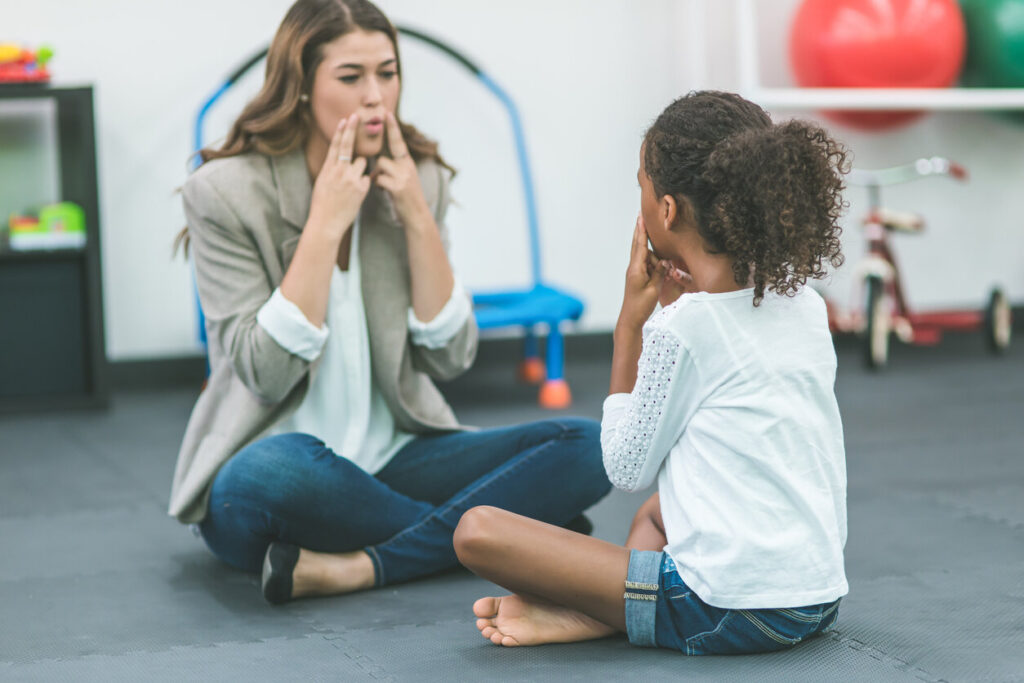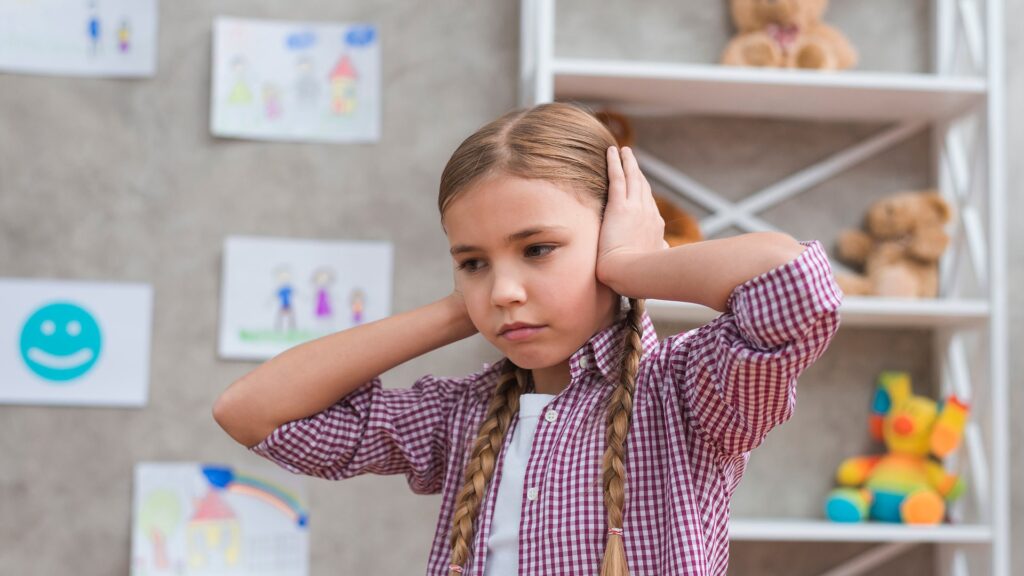Have you heard of the Montessori method and Montessori classrooms? Although Montessori classrooms are loved by many children, are they good for children who have special needs?
Montessori is good for children with special needs. Montessori classrooms allow special needs children to feel comfortable and safe in a learning environment that is nurturing and understanding. Montessori programs cater to each child’s abilities and needs as they learn and grow at their own pace.
There are many reasons why Montessori classrooms are good for children with special needs. Many of those reasons are included below.

Is Montessori Good For Special Needs?
Every child learns differently and every child feels comfortable in different learning environments. One of the many benefits of the Montessori method is that it is flexible and adaptable according to each child’s needs.
This reflects the purpose of the Montessori mission. By allowing each student to individually move forward at their own pace, the student can avoid feeling the pressures from their instructors and peers as they either progress or fall behind. Each student can feel confident in their individual progression without comparing themselves to others.
Another benefit is that each student will not be discriminated against because of their varying learning abilities or styles. Instead, the student’s unique learning abilities and styles will be catered to and their strengths utilized.
For example, if the student learns the subject of math differently than their peer, they will not be taught math the same way as their peer.
The instructor, often called a “guide“, will specifically take into account how that student learns best and adapt the math lesson to cater to all learning styles so the students can have the best experience possible. This allows students to grow in confidence rather than shrink in shame and timidity.
The last benefit is that in addition to accommodating each student’s academic skills, their social skills are taken into consideration as well.
The student will be placed in a group of students who are both older and younger, allowing them to be observant of both age ranges and make many friends. Principles of kindness and acceptance will be present in the interactions among students, allowing them to feel welcome and develop a sense of belonging.

Is Montessori Good For Autism?
Autism is not a “one-size-fits-all” disability that allows all of the interactions between an autistic child and education to be predictable.
Montessori is good for autism because, unlike traditional school systems that are strictly structured and predictable, this personalized methodology allows the lessons to be adjusted and taught around the student’s needs and abilities, rather than the other way around.
The way that Montessori classrooms function is beneficial to the way that children with autism respond to learning activities taught through multi-sensory, interactive methods.
Children with autism tend to get distracted and lose interest in a lesson or activity that they are not actively involved in.
If they are consistently participating and feel that they are having a part in the activity, it is more likely for them to stay engaged with the process than if they were just listening to an instructor speaks for a lengthy amount of time. They can participate in almost all activities held in a Montessori classroom.
Another aspect of the Montessori system that is beneficial for children with autism is how the classroom and its materials are set up.
Within a classroom that teaches through the Montessori method, all of the materials and tools the student will need for the activities they will be participating in that day will be laid out on shelves, starting from the most basic tool and moving down to the most complex. This will help the child have an easier time making and processing decisions without getting confused or distracted.

Can Kids With Autism Go To Montessori?
While the Montessori system is not actively advertised for children with autism, it is also not exclusively meant for children without disabilities either.
In fact, as much as it is beneficial for students without disabilities, it is proven to be specifically helpful for students who have autism. It is important to know that these students need a space to learn that they feel free to make their own choice to be involved with the lessons at their own pace and desire.
Some of the challenges children with autism deal with include things like communication impairments, difficulty socializing, lack of physical coordination, hyper-sensory sensitivity, as well as a need for consistency.
The Montessori method provides an environment that has been carefully designed and prepared so the students can feel comfortable in it. When Montessori classrooms teach a special needs child, the necessary adaptations are made so they can learn how they learn best.
If we were to compare a traditional classroom’s functionality and a Montessori classroom’s functionality, they would both come back as functional and effective. However, teachers in traditional classrooms can’t cater to the needs of every child like Montessori classrooms can.
A traditional classroom is not designed to cater to students who have varying learning styles. Instead, teachers have one set way of teaching a mass group of students that is regulated and regularly scrutinized.
The Montessori classroom is designed in a way that caters to each student and their individual learning styles. This helps allow the student to feel a sense of security, thus fostering the student to feel comfortable enough to choose to be involved.

Montessori Strategies For Working With Children With ADHD
The primary complaint that students with ADHD have regarding traditional classrooms is that there are too many distractions. The number of distractions detracts from the student’s ability to focus on the lesson being taught, resulting in them not learning the necessary information, which leads to them falling behind their peers.
The strategies that are practiced in the Montessori method create an environment and teaching curriculum that eliminates all major distractions, allowing the student the chance to focus on what is being taught, resulting in a more advantageous classroom experience.
Another strategy that is used to help children with ADHD have the best classroom experience possible, is the flexibility of the student’s pace. They can move as fast through the material as they would like, in accordance with the approval of the instructor making sure that they are understanding and absorbing the material sufficiently.
Contrarily, if the student is requiring more time to study and be exposed to a subject they are struggling with, the Montessori program is highly anticipatory of that possibility and is supportive and accomodating in that case.
The last strategy, similar to the previous one, is isolating subjects or concepts and going through them one at a time.
For any student, having multiple topics or ideas being thrown at you in regards to a broad subject can be overwhelming, causing them to retract in progress or shut down altogether. Students with ADHD are more susceptible to this happening, leaning more towards the possibility of completely shutting down.
Because the Montessori curriculum takes one concept at a time and makes sure the student understands that proficiently enough to feel confident to move forward to the next one, it is an ideal option to consider when you are determining where your child should go to school.

Is Montessori Good For Speech Delay?
Montessori is good for any student who needs extra help in any area. Speech delay is not exempt from that.
Although the Montessori program’s design is naturally accomodating to special needs such as autism and ADHD, the program can be adjusted and altered to fit and focus on assisting in the development of the child’s speech if that is something the student or parent has a concern about.
It is important if this is the case to discuss those concerns and expectations with your child’s instructor so they are aware and know that is something to make a special effort in their lessons and activities they introduce to the child.
Another point that should be considered is to put the child’s speech therapist and instructors in contact with each other. This way the instructors can be aware of what the child is already learning and working on in therapy and the instructor can then more accurately present those practices in the student’s lessons to help them further develop those skills.
This is also helpful if the therapist has been using particular materials or tools that could be adapted to the child’s academic lessons that they are already familiar with from therapy.

Is Montessori Good For Sensory Processing Disorder?
If the student is having a difficult time understanding what is being taught in the classroom and has a sensory processing disorder, Montessori is a program to seriously consider.
Children who have a sensory processing disorder may have a poor experience in a normal classroom setting, due to their hypersensitivity, which may cause them to retract from any involvement in the classroom or to act out in negative outbursts.
Montessori is a learning environment where the stimulants that could cause those reactions are lessened and more controlled than they would be in a traditional classroom.
One tactic that is especially effective for creating a safe, inviting environment for the student is to teach them about their 5 senses. As they learn about their taste, smell, sight, touch, and hearing they can become more understanding and aware of what exactly is happening and feel a sense of control.
Another tactic is to teach them that they have higher, more sensitive vestibular and proprioceptive senses that can become overwhelming. These senses create a heightened awareness of our balance and spatial surroundings.
This can cause some children with sensory processing disorders to feel overstimulated and irritated and react as such. Making the effort to help the student know that they have this opportunity to become aware and more in control of themselves will help them feel more confident and apply themselves more in the classroom.

Is Montessori Good For Learning Disabilities?
You cannot force a square peg into a round hole. All students learn differently. If a student learns better doing hands-on activities rather than listening to the teacher talk or by reading a textbook, then they should be free to participate in those hands-on activities.
The majority of children that struggle with a learning disability do better being actively involved with what they are learning about, rather than sitting in a chair and being forced to listen to a lecture.
The Montessori method allows the children to take literal action in their education and learn through doing, rather than listening.
Another struggle that is often presented in a normal classroom setting, is that the students lack an interest in the subjects they are learning.
Students are more successful in learning and understanding new concepts when they are naturally interested in them. While that is the case for all students, it is especially true for those who have a learning disability.
While they are still taught all of the basics that are taught in traditional classrooms, there is more allowance for the student to veer towards a particular concept they find intriguing, encouraging them to take charge of their education.

Is Montessori School Good For Dyslexia?
Because dyslexia is a language-based disability, mainly associated with reading and writing, children with dyslexia may have a delayed ability to accurately read and write. This can slow their progression in their lessons and can cause them to fall behind other students in their class. This is where the key benefit of a customized pace within the Montessori program comes in.
Placing the student in a setting where there is no pressure or expectation for them to keep up with their peers, but allows them to feel safe and accepted in their efforts to learn and understand the material that is made more difficult for them to comprehend than students who do not have dyslexia.

The environment Montessori classrooms provide not only allows room and time for minds to grow, but it allows confidence to grow as well. Lessons can be adapted to help improve phonetic and linguistic recognition and execution. This focus is not limited to language-focused lessons. It is also implemented into other lessons involving history, science, and mathematics.

